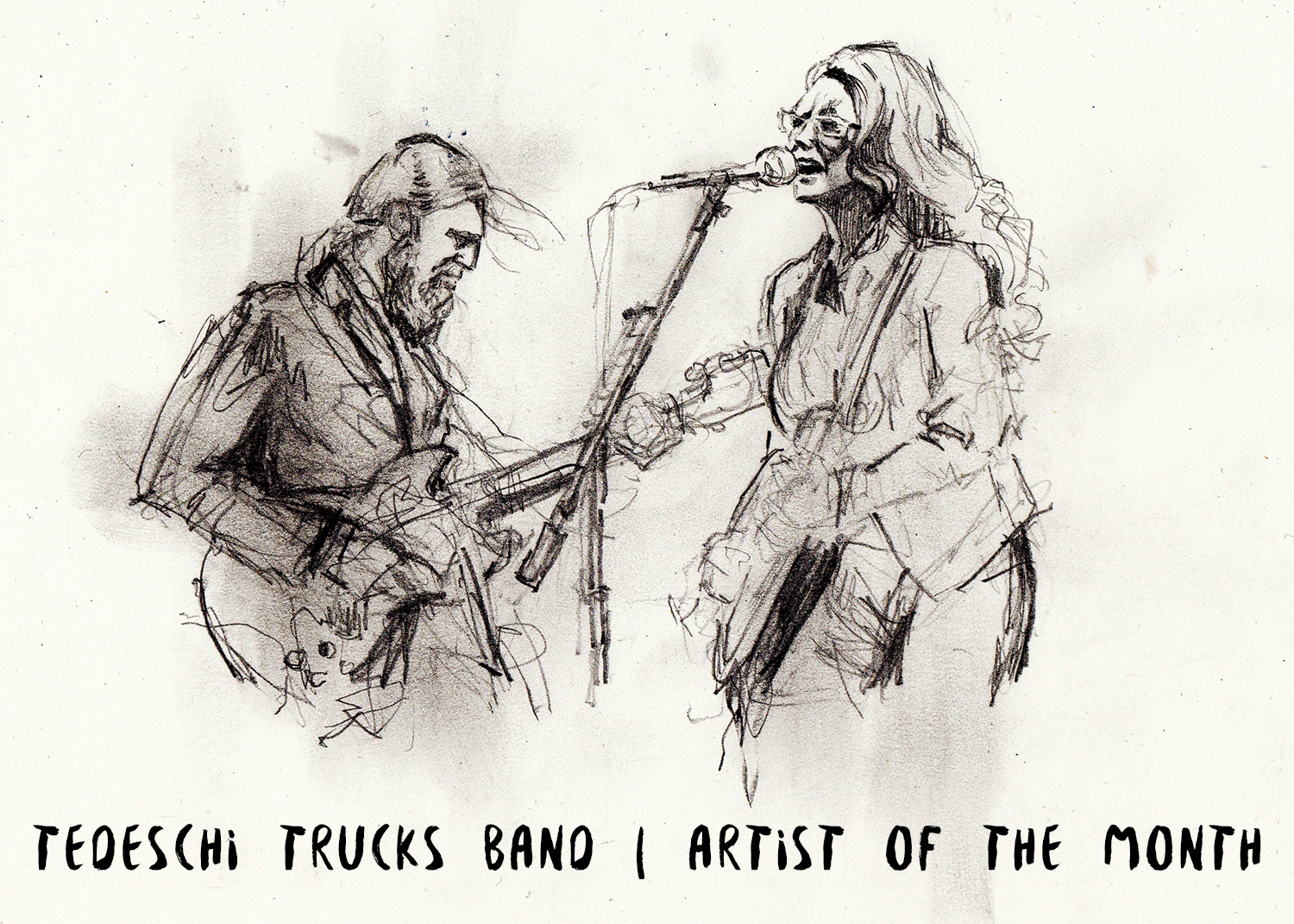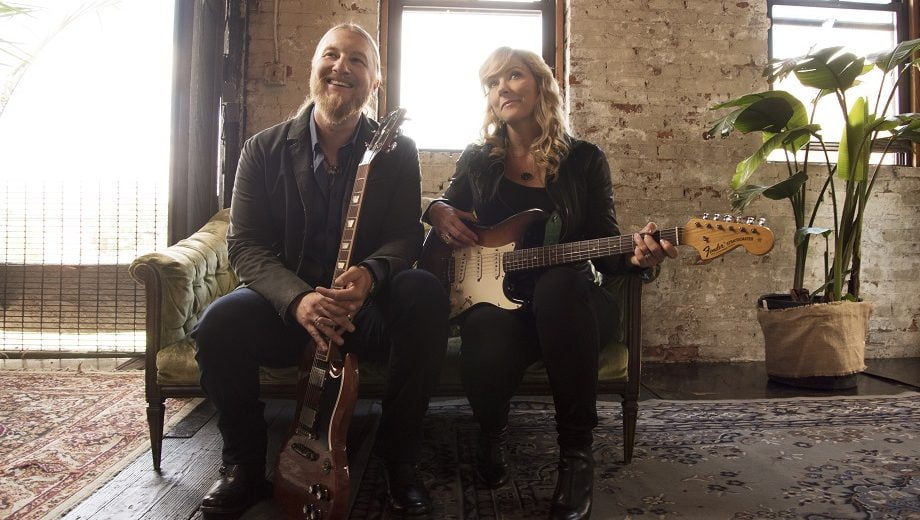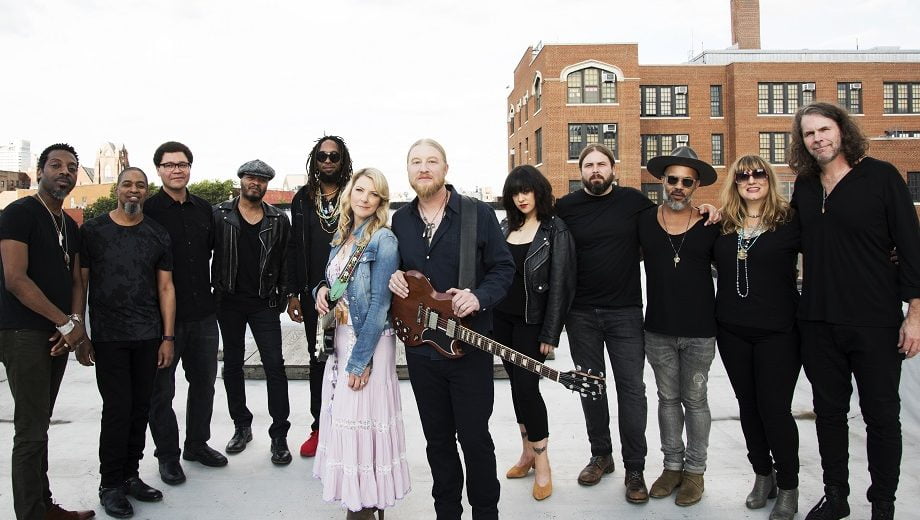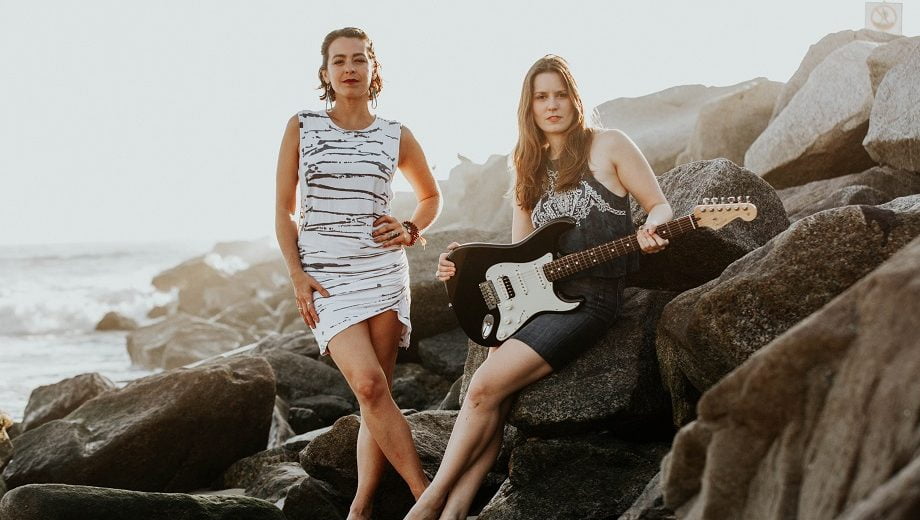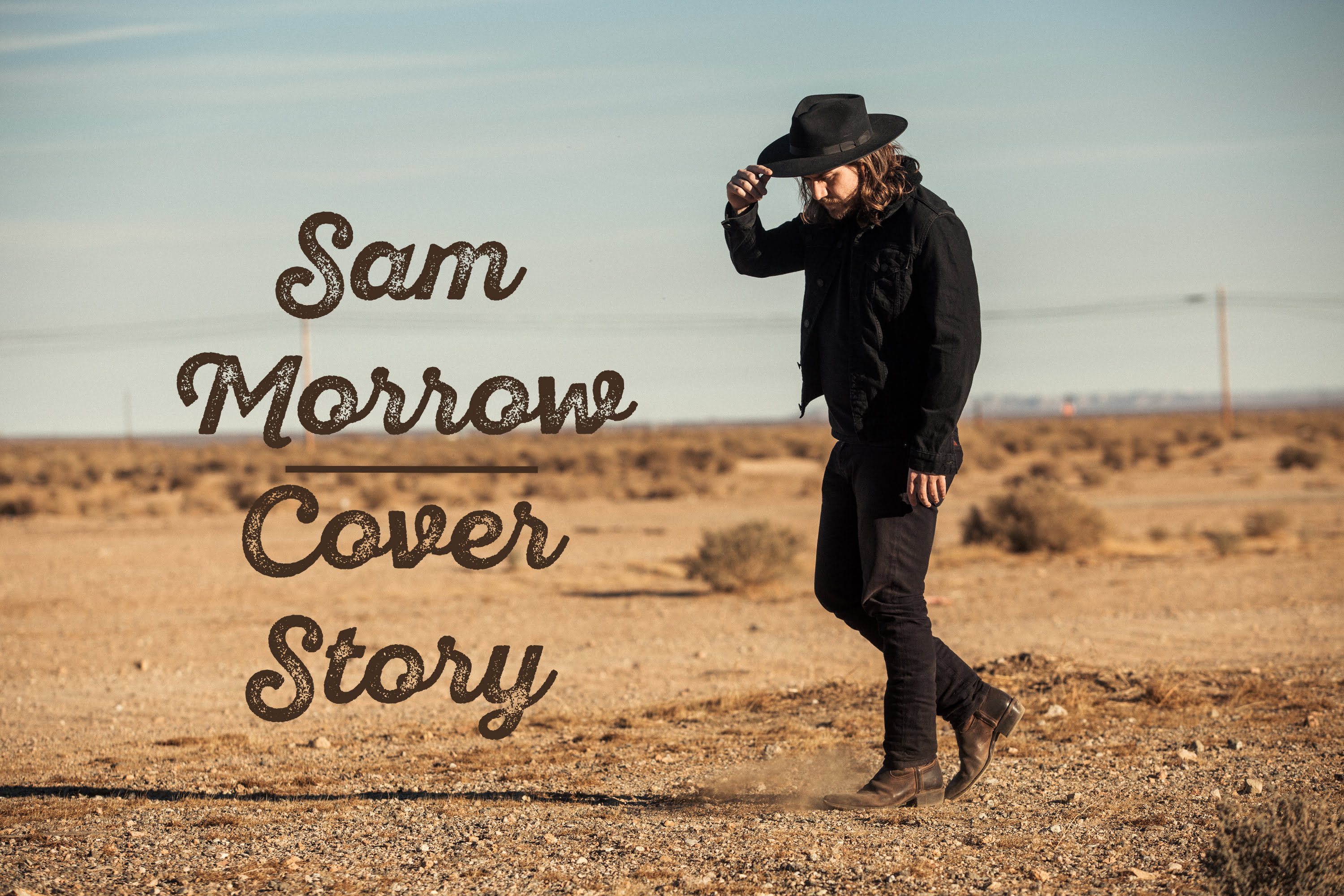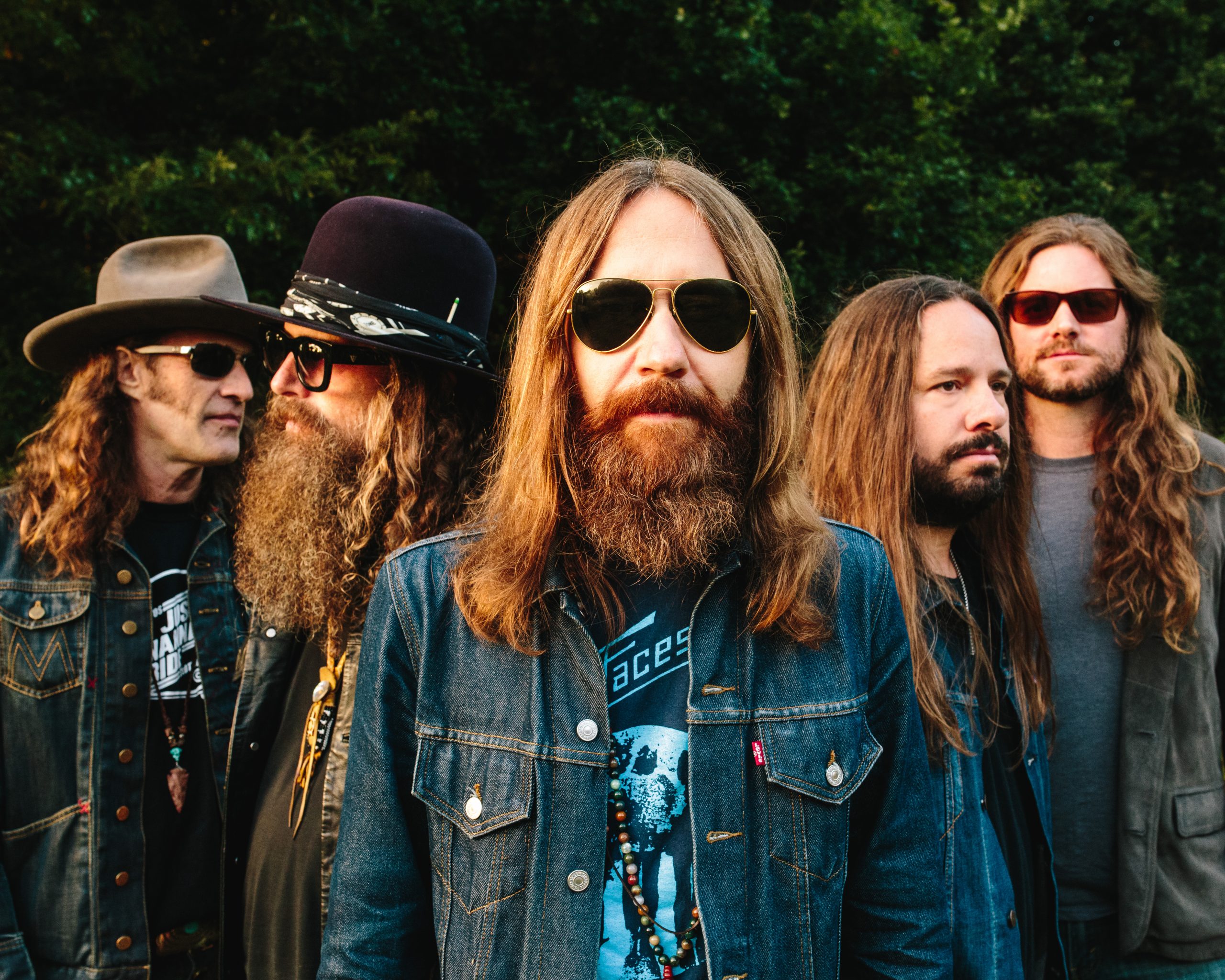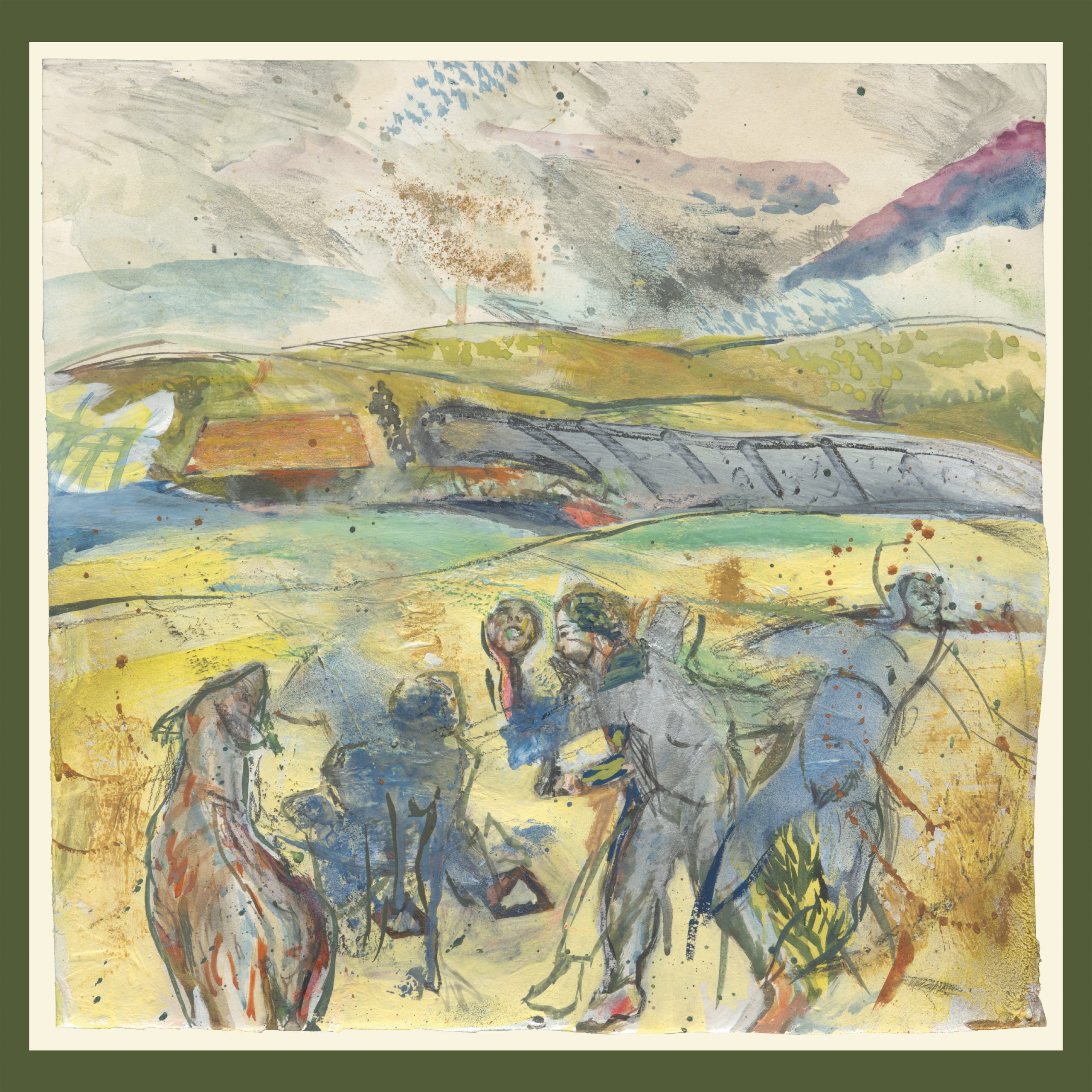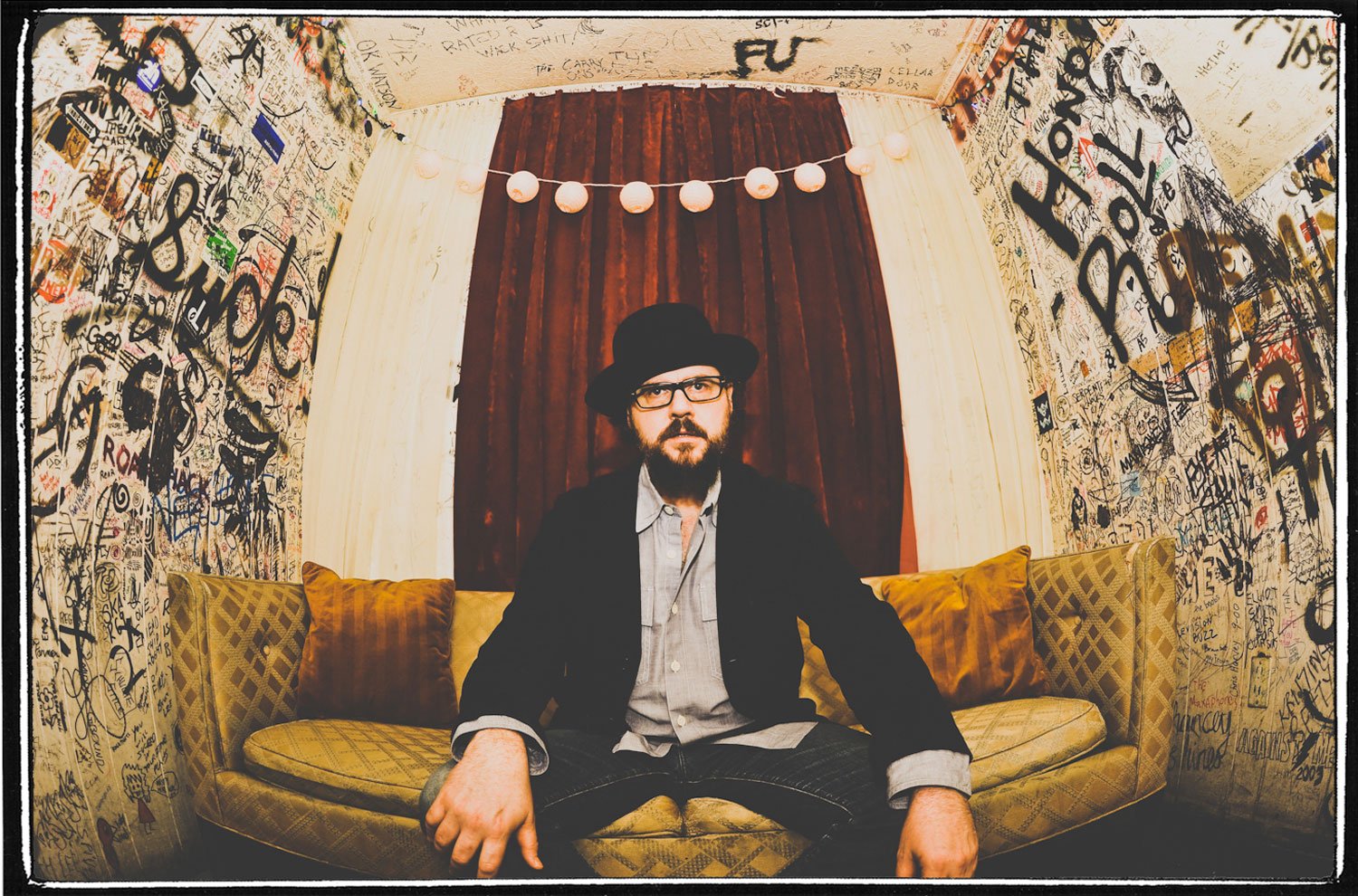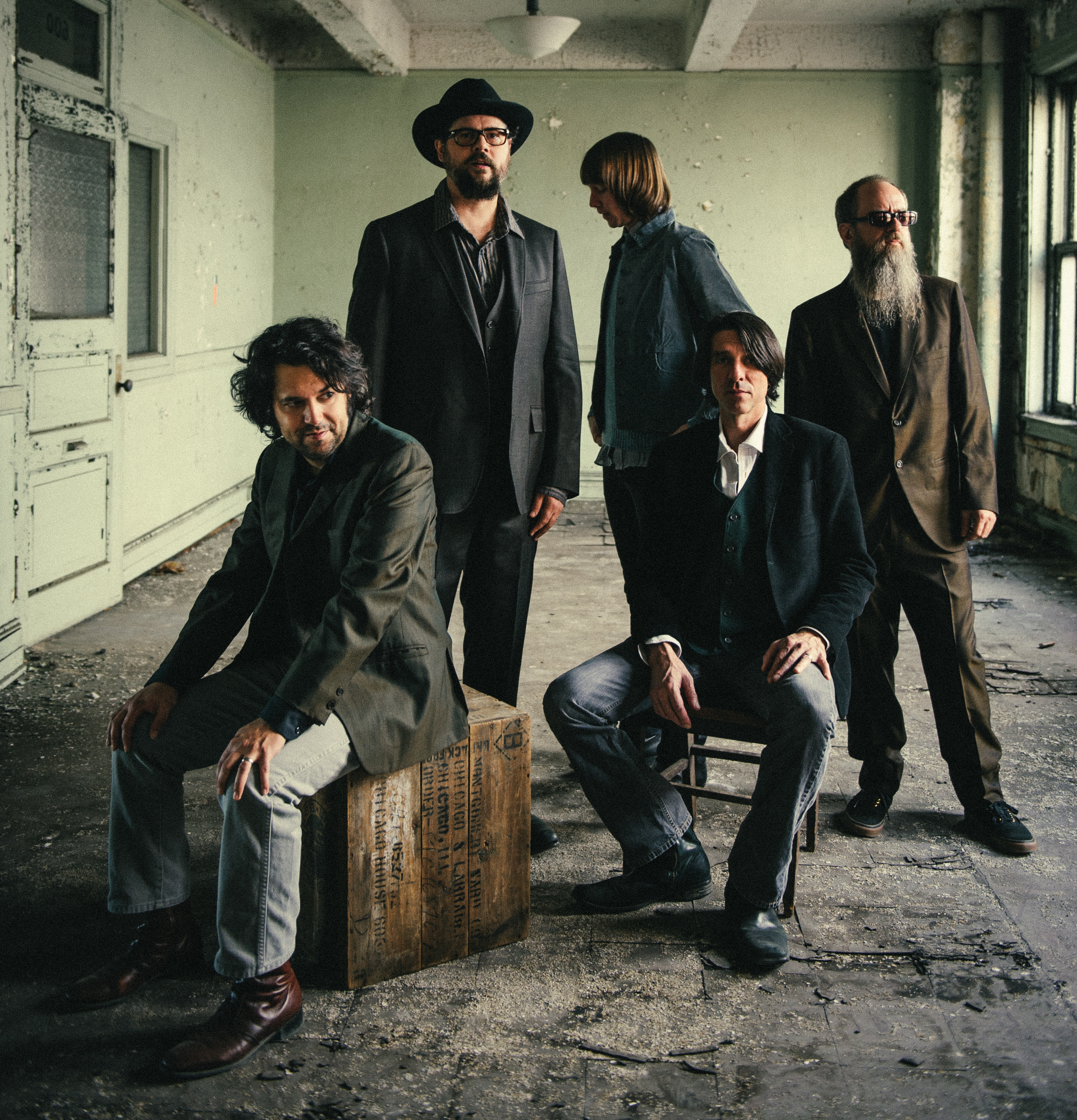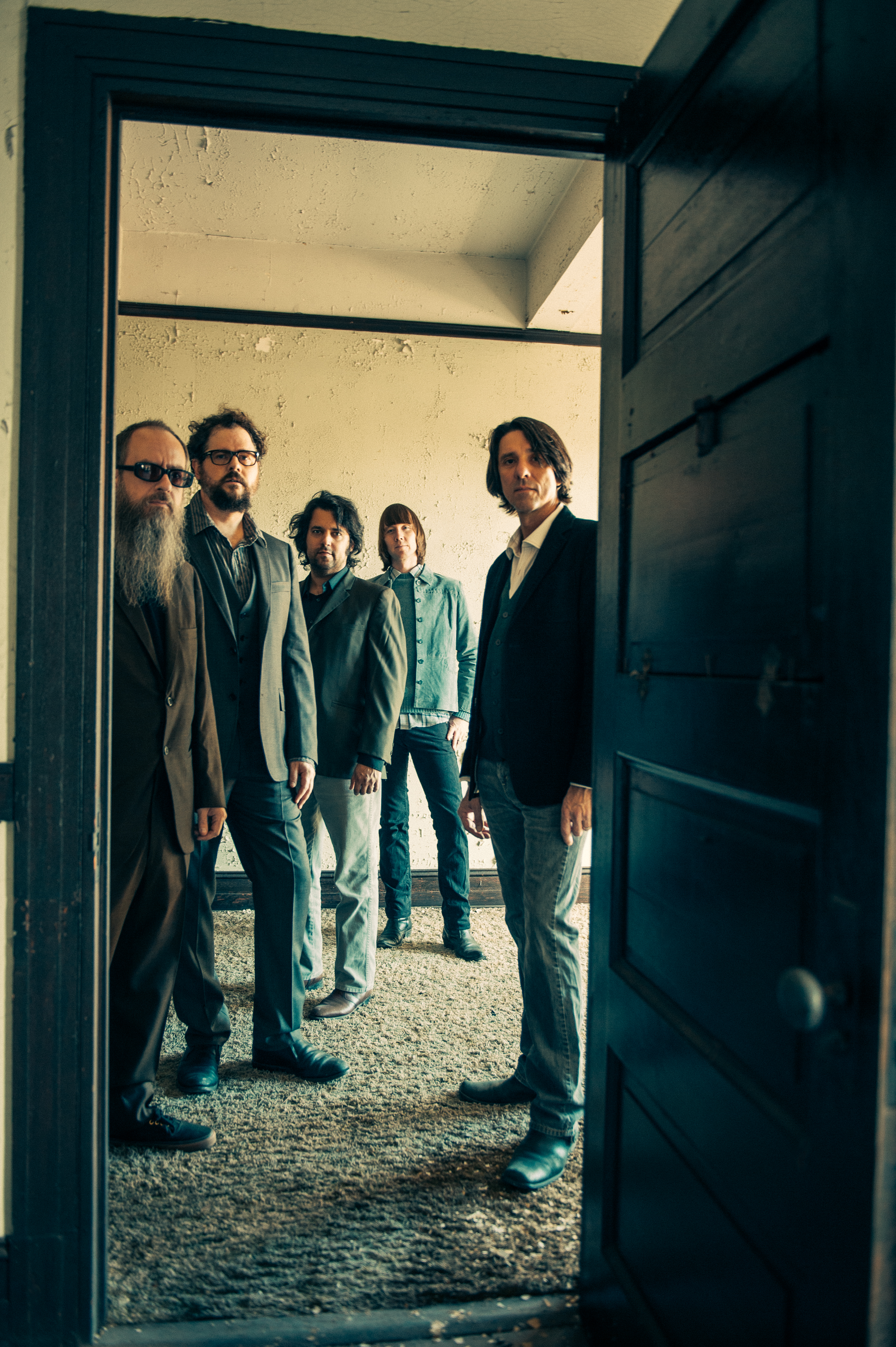Patterson Hood was just eight years old when he wrote his first song and was a youthful 14 years old when he joined his first band. At 21, he teamed up with fellow singer/songwriter/guitarist Mike Cooley to form the Drive-By Truckers. Over the course of their 20 years on the road and in the studio, DBT have drawn on influences as diverse as Willie Nelson, Muscle Shoals R&B, and Led Zeppelin to make music that revives and redefines the words “Southern Rock.”
Now living in the sunny climes of Portland, OR, Hood talks about everything from growing up the son of a musical legend [Muscle Shoals session man David Hood] to race relations in the American South to DBT’s voluptuous new live album, It’s Great to Be Alive!
The first question I was going to ask is: What’s a boy from the Shoals of Alabama doing in Portland?
Well, my wife and I have lived our whole lives in two states. I’ve traveled — a lot — 15 years now, really heavy on the road. And we’ve always said we wanted to experience living somewhere else. We also wanted to live in a city. Athens, GA, is lovely. It’s one of my favorite places on earth. It’s a great town, but it’s a town. It’s a college town, so there’s a lot more art and cool stuff than most Southern towns with 100,000 people in it. But there’s also the downside of the college town thing, too, which after about 20 years, we needed a break from.
We both kind of kept a list and I’ve spent a lot of time in a lot of towns. Portland’s been on the top of my list since at least 2000. And, likewise, top of her list, too. We didn’t want to move our kids across the the country when they’re teenagers; we had a little bit of time, but it was running out. So we decided to do it. We thought of places that were closer to home, but this was our first choice. We said, “If we’re going to go through the trouble of moving, let’s go to our first choice, and let’s experience living in a different part of the country.” Kind of a different part of the world, honestly.
[“And a blue state,” comments Patterson’s wife, Rebecca, from the living room.]
And a blue state, yep. That certainly factored in.
We’ve loved it here. It’s a long way from home. We’ve both gone through some homesickness, for sure. Especially her and the kids, because I’m kind of used to being homesick. It’s kind of part of my existence, because I’m gone 100 days a year. But I think it’s worth it. It’s a beautiful, beautiful city, and it’s kind of nice just having the new adventure. I mean, my job is an adventure, to a big extent, but it’s kind of fun having this personal adventure, at this point.
One of the things I wanted to talk with you about is the controversy over the Confederate flag. I'm going to read a quote from an essay you wrote for the New York Times Magazine back in July and ask you to illuminate it a little: "If we want to truly honor our Southern forefathers, we should do it by moving on from the symbols and prejudices of their time, and building on the diversity, the art, and the literary traditions we've inherited from them."
Damn, did I say all that?
You said all that!
That's pretty good! [Laughs]
Yeah, that's definitely how I feel. There are a lot of beautiful, wonderful things about the South and then there's this albatross we've put around our own necks down there, based on our history and a really dark part of our country's history. It seems like there's so much else to be proud of than your great-great-grandad fighting in the war they lost, you know? It seems like we're selling ourselves short when we hang onto that as our tradition, because there are a lot of traditions. Today [on the day of the interview] is William Faulkner's birthday. Put him on a flag and you can wave that flag anywhere you want to. I won't object to it. Or whoever, you know? Harper Lee. There are so many great writers. Or Booker T. Jones.
Put Booker T. on the flag!
Or Helen Keller — she's from one of my hometowns. She's from the Shoals area. There's no shortage of people and things to be proud of in the South. Rock 'n' roll came from the South. That's a pretty big one.
White man's country and black man's blues meeting at a crossroads …
Yeah, totally. It's one of the great art forms of our time and hopefully will continue to be.
We were actually on our drive cross country, on our way here, when the Charleston thing happened. We were checking into a hotel in Denver and I saw it on the TV. I was like, “Get the kids in the room, away from the TV. Don't turn the TV on.” And then I sneak downstairs to watch it because I wanted to know what the hell was going on. And I could tell it was something terrible.
If someone wants to have the Confederate flag in their yard or on their car, I don't give a shit — that's their choice. No one’s taking their flag away. But it should not be ceremoniously displayed on the courthouse or the capitol grounds. That's something that all our citizens pay taxes to support and there's a huge percentage of our citizenry down there that's rightfully very offended by that. And it's very much a "fuck you" in their face. I don't think our government should be in the business of saying "fuck you" to a vast swath of our citizenry. So that was where I was coming from on that. I think I worded it better. [Laughs]

[Laughs] At one point in that same article, you talked about how, when you were young, you weren’t aware of what was happening in Selma or Birmingham or Montgomery. At the same time, you were witnessing what was, in my opinion, one of the great moments of integration in our history — when your dad and the Muscle Shoals Swampers were making records with some of history’s greatest black musicians, like Aretha Franklin.
I absolutely agree! It's one of the things I'm proudest of in the world. I can't fathom that it was my dad who did this really amazing, great thing during this really dark, horrible time. He's forever proud to have been there, too.
The Shoals is a weird area; it's a very conservative town. There's no shortage of people with all kinds of antiquated and unsavory viewpoints. But it wasn't the definitive notion of the town. I started first grade a couple years after the schools were integrated and I don't remember any big deal about it. There were black kids in my classroom and it wasn't a big deal. It wasn't like Birmingham.
The things that dad and they were doing … no one knew about that, either. That was a secret. It was like this underground thing happening that I kind of learned early not to talk about at school. I think most of the people in that town had no idea that any of that was going on until years later. There were probably some people who really started finding out when they made that movie a few years back.
It's a very, very different place now from when I grew up. When I go home now, it looks similar in some ways — buildings and stuff — but they're very proud of dad and the Swampers. They've got statues of them now. They're in the process of putting statues up of the musicians in different places in the town; it's kind of a new thing. They're very much honored and revered there now.
But, at the time, they weren't going to take any chances. They couldn't afford to be harassed and bothered. It was a dry county, you know, and musicians drink. They had to have liquor in the studio that had to come from the Tennessee state line or a bootlegger somehow. Not to mention other things that happened at recording studios … especially when the Stones came to town. [Laughs] It's a crazy, crazy story. The movie is a wonderful thing, but it honestly just scraped the surface, because there are so many facets to that story. People are starting to write books about it. There are probably several books worth of stories floating around.
I want to take a little detour from my list of questions. I’m looking over at your bookshelf and seeing Songwriters on Songwriting. Open it up and see where it lands.
Oh, Lord. I opened it to Todd Rundgren.
Todd Rundgren to the Drive-By Truckers … how do we make that connection?
It's crazy to open it right to that, ‘cause I always say that Something/Anything? is, like, my one desert island record. It has been since I was 12. I started writing when I was eight. Listening to that record was kind of a turning point in my writing. He's a madman. [Laughs]
That record had everything.
It did, and I loved that. Every side was a totally different genre.
It had hits; it had scream rock.
That's probably as much of an influence as anything. My taste is really, really eclectic. Our band may have a definite sound due to the way that I sing, or [Mike] Cooley sings, or just the way we play together, or whatever, even with all the different personnel changes through the years. There's a common thread, but if you look at the direction that thread is pointing at any given time, you get a lot of diversity. Our first two records were attempting to funnel this thing we do through the lens of old-time country. The third record, the live record, was kind of a punk rock record. Then the fourth record was Southern Rock Opera, which was this whole take on arena rock, set in the '70s, and trying to sound as '70s as we could. I think we kind of pulled that off, and that's probably not a stretch for us in retrospect. And then Decoration Day was this, and Dirty South was that.
Dirty South was us trying to take on some of the subject matter of the hip hop records of the day, filtered through the sound of the way we were and the way we played. We obviously couldn't rap, you know, so we didn't try that, but as far as the themes of the songs … we were all really into that. Blessing and a Curse was sort of our take on the post-punk Replacements era. Brighter Than Creation's Dark is sort of an Americana record, I guess. Big To-Do is an attempt at doing power pop. Go-Go Boots was country soul. I don't know what English Oceans was. We just wanted to make a record. [Laughs]
Which is what I really like!
We just wanted to make another Drive-By Truckers record, I think, without any kind of a genre idea. I think we felt like we'd done too much of that by that time. But I'm sure part of that influence was Todd Rundgren and Neil Young, too, ‘cause he's all over the map. A lot of the artists I love tend to go all over the map.

So, this is a good lead-in to the next question. You've got this new live record that came out recently called It's Great to Be Alive! There are 35 songs in the set. How do you choose what songs to put in there and how do you tie all these diverse influences together?
This line-up of the band is so great. I'm proud of all the different line-ups of the band. I love the various places the band was in, even if some of them had some issues or had some things that didn't work. But we've kind of landed on our ultimate band at this point. And Cooley and I both feel the same way about that. The way it plays together, the way it interacts, the personal dynamic, is all really fantastic.
We had made English Oceans, which is very much kind of the first time we went in with that line-up. The goal then was that we wanted to record it really quick and really immediate — we wanted to go in and just capture the moment. Everyone had a working knowledge of what the songs were. We all sent demos. In the case of my songs, they were literally just me on acoustic guitar. Cooley's demos were a little more done. I think he has fun doing that, building tracks. We just wanted to capture this band attacking that material. We'd been saying for years we wanted to do a live record. And it just seemed like now is the time. We had the band right, everybody's having fun, and if we were going to do a live record, I wanted everyone to be having fun, because that's part of the joy of the better live records. There's an aspect of fun to them.
As far as the song selection, we have 150 songs, at this point, in our history. We all had in our head, I think, what was most important for it to be. We don't use a set list, so that provided a challenge. We knew we were recording for three nights at the Fillmore. We didn't want to go through a set list and have it be different than a regular show, where we're having to follow a list. We still like to do it where we decide the first song as we're walking on, and then it just happens.
So our compromise was that we did a master list of maybe 20 songs that we wanted to make sure we captured over the course of the weekend. If on Thursday night we knew we had great takes on three of those, we'd mark them off the list. By Saturday, it was a pretty small list we knew we had to hit at some point during the show. It worked like a charm. We ended up with about 50 songs to choose from that had really great takes from over the course of the weekend. Then it's a matter of just whittling it down to a more usable group … well, if you can call 35 songs usable. I wanted it to touch fairly equally on the different eras and records of the band. There's a fairly even number of songs from the various incarnations of the band and records.
Why the Fillmore as opposed to some place closer to home, so to speak?
Well, we've always done really great on the West Coast. That's kind of a myth about our band. The South was actually a little bit of a later place for us to break. Historically, when we started out, the first towns we really had followings were Atlanta, Richmond, New York, and Baltimore. Chicago came pretty early, Austin came pretty early, and then we expanded out. But it took us a few years to get our touring up to the point where we could afford to make the trek cross-country and get out here, but we always did well on the West Coast once we started doing it.
When we put out Southern Rock Opera and all of a sudden got real management — someone besides me booking the band — our benchmark for being able to tell where we were at was the Fillmore. We were interviewing booking agents and we had narrowed it down to two. We point blank said, "We want to play the Fillmore. How long will it be before we can play the Fillmore?" One of the two people we were interviewing told us that we were being a little overly ambitious and we should think smaller. The other one told us, "I'll have you there opening in a year, headlining in three." He got the job. And he's still our booking agent — he's been with us since 2002, and will be with us as long we are together, as long as there's a band. He made those benchmarks. We played there about seven months later and we made the headline a couple months shy of three years.
Last year, we played three nights there. It was the end of our touring year. It just kind of made sense, like it was meant to be. I knew it would be a great room to record us in. It's a great-sounding room. It's not too big. If you get too big a room to record a live record in, you get that boominess. The acoustics are great, and also they don't have a barricade between the front row and the stage. The crowd is right up in your face. And we always play better in those rooms. They're rare. All my favorite places we play are like that. Our next choice after the Fillmore probably would have been the 9:30 Club, because it's the same thing. It's a similar-sized room. It's a room with a great history, but we played there at the beginning of the tour, and we played the Fillmore at the end of the tour, so it made sense for it to be there.
Is there one song on the record that, when you listened to it or when you were putting together the album, you felt was transcendent or a defining moment?
As far as my songs go, "World of Hurt." That's a song that always felt like one of the more special songs I've ever written. I was proud of the version on the record when we made Blessing and a Curse, but that night, I knew that night it was a good one — it was special. We had the horns and it was a really, really good take of it. I knew on stage we had gotten it, unless there was some kind of technical problem. Having David, our engineer, out there, you knew there wouldn't be any issues. That would have sucked — this great three-night stand and you listen to the tapes and it's all mangled. But it happens!
One more question I think ties up the whole conversation. Prior to playing "Made Up English Oceans,” Cooley talked about Jimmy Carter and the KKK coming to your hometown. He said it was a source of embarrassment for the home city. How do you see that conversation — in what you've said, in what you've written for the Times, in your music, in what he said there continuing for Drive-By Truckers as you move forward?
I think it's something that's definitely on all our minds. I'm curious to see, moving forward, exactly where the next record goes. We're actually pretty close to starting another record. I've been writing a lot for it; Cooley's writing a lot for it.
I think the general mindset is definitely a part of what we're writing, it's kind of where we are as a country. We're not going to get past any of this shit until we can talk about it. It's an uncomfortable conversation, so I understand why people shy away from wanting to talk about our country's history with race. And, you know, we're these white dudes from the South talking about it … but whites dudes from the South need to talk about it. It doesn't just need to be black people saying black lives matter. It needs to be something that we all can talk about and move forward from or else we're going to not move forward.
I was certainly one of those people that, when Obama was elected, thought, "Oh man, we have turned a corner!" I still idealistically hang on to some of that, but actually there's a lot of work left to do. I think it was probably overly idealistic to think that that was going to be the beginning of the end of that conversation. It was just the beginning of the beginning of that conversation, you know?
Patterson Hood photo by Andy Tennille. DBT photos by David McClister.
